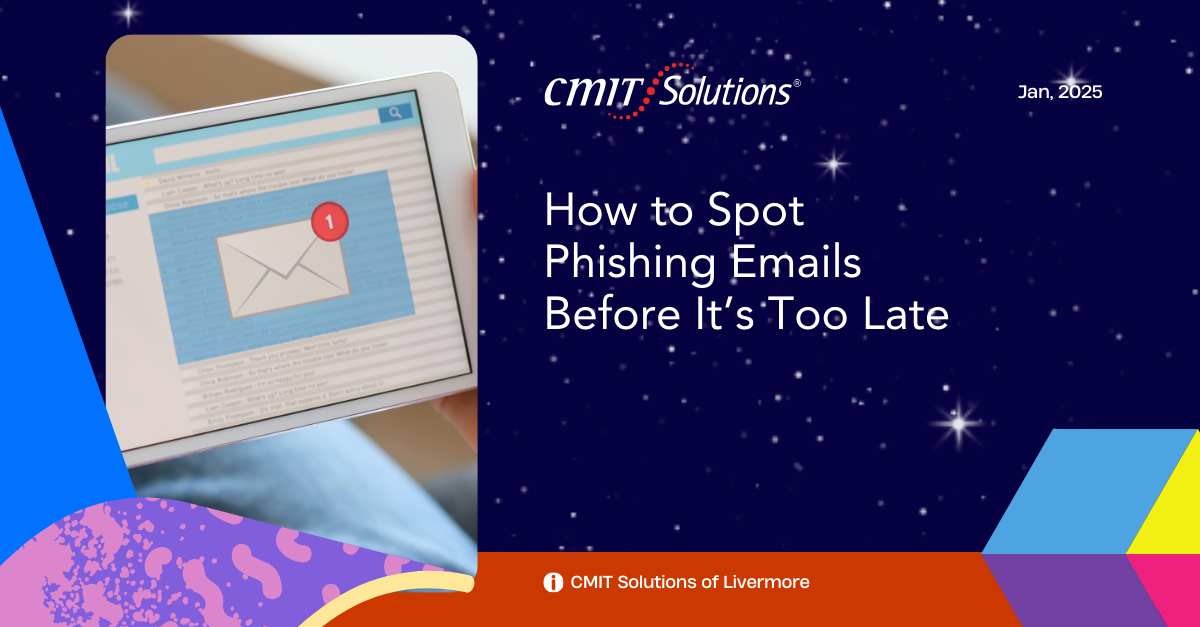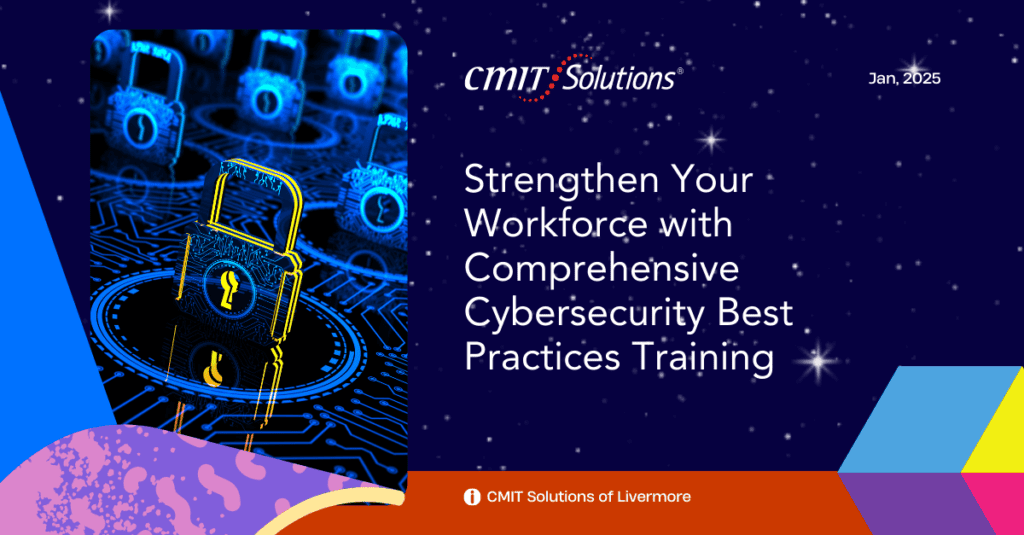Introduction
Phishing emails have become one of the most common and dangerous cybersecurity threats that businesses and individuals face today. Cybercriminals use fraudulent emails to trick employees into revealing sensitive data, clicking on malicious links, or downloading harmful attachments. Falling for a phishing scam can lead to data breaches, financial losses, and serious cybersecurity risks.
To protect your business from phishing attacks, it’s essential to identify suspicious emails before they cause damage. This guide explores key signs of phishing emails, how businesses can strengthen cybersecurity defenses, and the importance of working with a reliable IT provider to prevent attacks.
1. Recognizing the Signs of a Phishing Email
Cybercriminals design phishing emails to appear legitimate and urgent, making it difficult to differentiate them from real messages. However, by paying close attention to certain red flags, employees can avoid falling victim to email scams.
Outsourced IT Support Livermore provides advanced email security solutions to detect phishing attempts before they reach inboxes.
Common Phishing Email Red Flags:
✔ Suspicious Sender Address: Fake emails often use slightly misspelled domain names or unfamiliar addresses.
✔ Urgent or Threatening Language: Scammers create a sense of urgency to pressure recipients into taking immediate action.
✔ Unusual Attachments or Links: Phishing emails contain malicious links or attachments designed to steal data or install malware.
✔ Generic Greetings and Poor Grammar: Legitimate companies personalize emails, while phishing messages often start with “Dear Customer” and contain spelling mistakes.
✔ Requests for Sensitive Information: Reputable businesses never ask for passwords, bank details, or security codes via email.
IT Compliance Livermore helps businesses implement email authentication protocols and security training to identify phishing threats.
2. Verifying Email Authenticity
Before opening an email, clicking links, or downloading attachments, employees should take a few seconds to verify its legitimacy. Simple verification steps can prevent cyberattacks and data breaches.
Livermore IT Support Services ensures businesses implement email security policies and train employees on proper verification practices.
How to Verify a Suspicious Email:
✔ Check the Email Address: Hover over the sender’s email to reveal the full address and verify its authenticity.
✔ Inspect the Link Before Clicking: Hover over links (without clicking) to see the actual URL. If the link does not match the sender’s official website, it’s likely a scam.
✔ Confirm with the Supposed Sender: If an email claims to be from your bank, IT department, or a known vendor, contact them directly through official channels to verify.
✔ Look for Email Spoofing Techniques: Some phishing emails use “Reply-To” addresses that differ from the sender’s address, which is a clear sign of fraud.
Small Business IT Support Livermore offers email security filtering to detect and block phishing attempts before they reach employees.
3. Strengthening Business Email Security
Phishing attacks continue to evolve, making it essential for businesses to implement strong cybersecurity measures that block suspicious emails and prevent unauthorized access.
IT Support Livermore provides AI-powered email security solutions that automatically detect and filter phishing emails.
Best Practices for Email Security:
✔ Enable Multi-Factor Authentication (MFA): Adds an extra layer of security, preventing attackers from accessing email accounts even if passwords are compromised.
✔ Implement Spam Filters and AI Threat Detection: Automatically blocks suspicious emails before they reach users.
✔ Regular Security Awareness Training: Educates employees on identifying phishing scams and avoiding cyber threats.
✔ Use Email Encryption: Ensures sensitive information remains protected from unauthorized access.
Managed IT Services Livermore helps businesses set up automated email security tools and cybersecurity awareness programs.
4. Preventing Cyberattacks with Strong IT Policies
A business’s first line of defense against phishing attacks is a proactive IT security strategy. Implementing strict IT policies and regular cybersecurity assessments ensures that employees follow best practices for email safety.
Cybersecurity Services Livermore offers real-time threat monitoring, phishing simulations, and employee training programs to reduce the risk of cyber threats.
For companies handling sensitive client information, Livermore IT Management provides comprehensive cybersecurity solutions to protect email servers and prevent data breaches.
5. Reporting and Responding to Phishing Attacks
Even with preventive measures in place, phishing attacks may still bypass security filters. Businesses should have a clear incident response plan to contain threats and minimize damage.
Cybersecurity Solutions Livermore helps businesses develop security incident response plans to quickly address phishing attempts.
What to Do If You Suspect a Phishing Email:
✔ Do Not Click on Links or Attachments: Immediately delete the email without interacting with it.
✔ Report the Email to IT Support: Forward suspicious emails to your IT team for analysis.
✔ Reset Compromised Passwords: If login credentials were entered on a phishing site, reset passwords immediately.
✔ Monitor for Suspicious Activity: Keep an eye on financial accounts, customer data, and business transactions for any unauthorized access.
It Support Companies Livermore ensures businesses have incident response strategies and cybersecurity protocols in place.
Conclusion
Phishing emails are one of the biggest cybersecurity threats businesses face today. Cybercriminals continue to refine their tactics, making it essential for employees to stay vigilant and informed. By implementing strong email security measures, cybersecurity awareness training, and advanced threat detection tools, businesses can reduce the risk of falling victim to phishing attacks.
For businesses looking to strengthen cybersecurity, Managed IT Provider Livermore offers comprehensive IT security services, real-time threat monitoring, and advanced email protection solutions.
By working with Business IT Support Livermore, businesses can stay ahead of cyber threats, train employees effectively, and implement proactive security measures to ensure long-term protection against phishing attacks.



